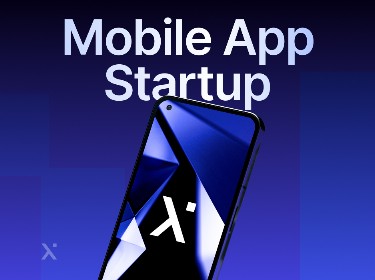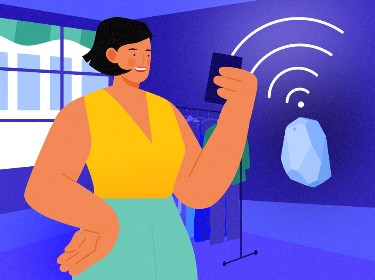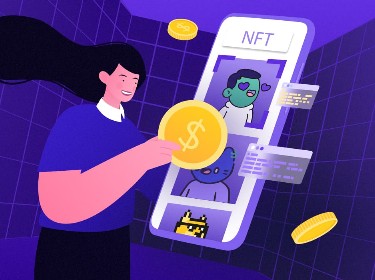The South Korean smartphone giant presents its users an advanced and safe platform for personal information management and storage of digital keys — The Samsung Blockchain Keystore. The platform seems to take users' experience to a new level of comfort.
Blockchain has been adopted by a large number of world-renowned companies. The aspiration behind this is to streamline workflows, boost efficiency, and provide better security.
Another, and probably the biggest, reason why blockchain has been witnessing such a huge upsurge in its popularity is cryptocurrency. People who use cryptocurrencies to carry out transactions are in need of special blockchain-powered apps for secure and efficient cryptocurrency management.
Considering blockchain trends, the global electronics giant Samsung has introduced the Samsung Blockchain Keystore meant for easy and secure handling of crypto transactions. It also possesses additional security features from Knox and the Trusted Execution Environment (TEE) that enable users to keep authentication data secure and ensure that their personal information won’t be tampered with.
But what exactly does the Samsung Blockchain Keystore do and where is it available? How does Samsung use blockchain? What is the Samsung Blockchain Wallet and how to use it?
In this article you will find the answers to these and many other related questions.
What is the Samsung Blockchain Keystore?
![]()
Samsung has been extremely enthusiastic about wider blockchain and cryptocurrency adoption. This can be viewed from the company’s supportive stance towards DApps — blockchain-powered decentralized apps — and the introduction of the Samsung Blockchain Keystore back in March 2019 along with the Samsung Blockchain Wallet that acts as a built-in cryptocurrency wallet.
The Samsung Blockchain Keystore is a substantial element of the company’s blockchain initiative, which is aimed at tackling security issues related to blockchain and the integration of mobile devices.
How does the Blockchain Keystore by Samsung function?
The Samsung Blockchain Keystore works as a blockchain framework for accessing decentralized apps and managing cryptocurrency transactions. Simply put, it provides a convenient and efficient gateway to the blockchain via a smartphone. To address safety concerns, the Keystore provides integration with Samsung’s Knox security system and Samsung’s “TEE” (Trusted Execution Environment).
During the set-up process, it invites users to import their cryptocurrency wallet or create a new one. Then the system asks them to enter the recovery phrase in a special secure location, ensuring that the user has completed this step correctly. Once all the details have been settled, the wallet is ready to use and you’re able to securely carry out different cryptocurrency transactions via your phone.
Take a look at this multi-currency mobile wallet for Android and iOS
What is Samsung Knox?
Looking at Samsung’s history, it’s clear that the company has always strived to create a secure and safe infrastructure on its mobile platforms. To add an extra layer of security in the Samsung Blockchain Keystore, Samsung uses Knox. If you have a Samsung smartphone, you might know the Knox technology from Samsung Pass and Secure Folder that can be accessed in the Biometrics and Security section located in Settings. Thanks to Knox technology, the Blockchain Keystore is able to verify that the kernel of a device hasn’t been hacked and the device itself runs an approved binary.
Samsung Knox enables users to divide the data for their applications into two different sets on the same device, making it possible to split one dataset (e.g. work use) from the other (personal use). Samsung Knox provides a great level of security. If an unauthorized user wanted to gain access to your mobile device, they’d find it extremely hard to access that second layer protected by Knox.
What’s more, a large number of IT enterprises and government agencies worldwide rely on Knox technology, as it has established itself as a reliable security provider.
What are the technical core features of Samsung Blockchain Keystore?
The great thing about the Samsung Blockchain Keystore is that it has a lot of built-in features that support cryptocurrency apps and DApps as well as other blockchain-based functionalities. It also provides support for managing, storing, and creating private keys. According to Samsung, users are able to import different private keys after they’ve created them via third-party apps, and if they wish to, they can include additional safeguards such as face recognition and fingerprint authentication.
Besides, the Samsung Blockchain Keystore provides the so-called “Trusted User Interface”, or “Trusted UI” for short, which guarantees top security for all information and ensures that it cannot be hacked or accessed by unauthorized apps or other malware.
Another notable feature that the technology offers is the Trusted Execution Environment, also known as the TEE. The TEE is designed to keep authentication data separate and is normally used as a secure zone of the device’s CPU. The TEE functions in an isolated environment that is separate from the main OS, thus separating its data from all other processes.
On the whole, the Samsung Blockchain Keystore is all about heightened security and is full of advanced features that contribute to its top levels of protection.
What does the Samsung Blockchain Keystore offer its users?
![]()
With the help of the Samsung Blockchain Keystore app, users can get access to features such as key management, transaction signing, setting up authentication methods, and managing Keystore settings options. Let’s take a closer look at these possibilities below.
Key management
Users are able to create a new key pair, consisting of a public and a private key, or they can import existing keys from other wallets. The Samsung Blockchain Keystore supports the Bitcoin Improvement Proposal (BIP-39, for short) standard, as well as an HD (Hierarchical Deterministic) Wallet.
When a new wallet is created, a Root Seed is generated, which derives public and private keys for blockchain-based transactions, payments, or contacts in DApps as well as other wallet services integrated with the Samsung Blockchain Keystore.
Sign a transaction
Users can also make transactions via blockchain applications that have been integrated with the Samsung Blockchain Keystore. They can also check sensitive information about transactions (recipient address, etc.) and even verify the transaction for the Samsung Blockchain Keystore to sign it.
PIN and fingerprint management
When setting up a wallet, users are normally asked to create a six-digit PIN in order to secure their cryptoassets. A PIN is a means of verification for cryptocurrency transactions and payments, along with smart contract development services in various integrated services. If a user’s fingerprint has been registered on the mobile device, they can select a fingerprint as another type of authentication. The PIN and fingerprint are required every time a user signs a blockchain transaction or checks confidential information.
Managing the Samsung Blockchain Keystore
After all the procedures have been completed, the Samsung Blockchain Keystore is finally ready to be used. As well as authentication management, users can also set alarm notifications and connect to special channels where they can communicate with the Samsung Blockchain team to help resolve any issues.
As you can see, the Samsung Blockchain Keystore is quite easy to use, yet very helpful for cryptocurrency transaction management.
What makes the Samsung Blockchain Keystore special?
In the same way that Google Play and App Store have managed to stir up a keen interest in DApps among consumers, Samsung’s Blockchain Keystore has generated greater enthusiasm for blockchain and decentralized applications.
The Samsung Blockchain Keystore is a huge step towards wider blockchain adoption. Samsung undertook to integrate blockchain functionality into its flagship line of mobile devices and seems to have made the right decision. It has led to broader blockchain implementation, and smartphone support of blockchain has literally brought the DLT functionality into consumers’ hands.
This integration of Samsung phones with blockchain allows for a more positive customer experience and more convenient and sophisticated cryptocurrency management. Given that Samsung devices are popular all over the world, the Samsung Blockchain Keystore will potentially hit the spot for a very large number of consumers.
Samsung and blockchain relationships
![]()
It’s a well-known fact that blockchain can benefit a wealth of industries. Companies all over the world have been eager to implement this powerful technology in their processes or start developing blockchain-powered apps and DApps.
South Korea, in particular, is considered to be a breeding ground for cryptocurrency adoption and blockchain implementation. Consequently, it seems pretty logical that Samsung, the South Korean electronics giant, has become one of the first industry adopters of blockchain technology.
Back in 2019 Samsung entered the blockchain arena by introducing its Samsung Galaxy S10 flagship, which came along with the Samsung Blockchain Wallet App that enables its users to carry out cryptocurrency transactions and access DApps from their smartphones.
By introducing this innovative blockchain-based solution, Samsung aims to bring about adequate security arrangements and allow for more efficient cryptocurrency handling via smartphones. And it goes without saying that Samsung will keep on working on other blockchain projects in the future, as its consumers and crypto enthusiasts will be waiting for more features and advancements.
Learn about this browser extension that connects DApps with the blockchain platform
What does the integration process look like?
To ensure the smooth integration of the Samsung Blockchain Keystore, it’s important to consider the following steps:
- Include AAR files in the custom Android app development services project
- Activate developer mode to enable APIs
- Submit the application for verification and receive an API key (It’s advisable to remember that an API key will be issued after the internal team has reviewed it, which can be a bit of a lengthy process if there are a lot of submissions to look through)
- Include an API key in the release version of the app
- Deploy the app on the market
The Samsung Blockchain Keystore SDK enables an Android DApp to interact directly with the Samsung Blockchain Keystore, which needs to be downloaded in advance on the selected Galaxy devices. By integrating Samsung Blockchain Keystore SDK into an Android application, you can:
- Receive a blockchain address to the link to the Samsung Blockchain Keystore
- Sign cryptocurrency transactions
- Check the status of the Keystore
On the whole, the integration process isn’t that difficult, but if you have any doubts, seek assistance or get expert consultation.
What about the Samsung Blockchain Wallet?
![]()
The Samsung Blockchain Wallet heavily relies on the Samsung Blockchain Keystore. It’s used for conducting cryptocurrency transactions and providing relevant information about cryptocurrencies, including market trends and tendencies, weekly values, account balances, overall estimated balance across all currencies, etc. The app supports Bitcoin, Ethereum, and Tron as well as other cryptocurrencies, and grants access to DApps. Furthermore, users who often transfer cryptocurrencies to particular contacts and wish to personalize their names can add and edit nicknames for these accounts.
To get the Samsung Blockchain Wallet, you have to download it directly from the Galaxy Store. The app is free of charge. In some cases, you’ll have to pay fees for crypto-asset transfers but bear in mind that they can also be payable during the transfer process.
All in all, the Samsung Blockchain Wallet is a really handy app that contributes to better cryptocurrency handling and DApp access.
Not only mobile: here is a desktop wallet for cryptocurrency transactions
Which mobile devices support the Samsung Blockchain Keystore?
According to the information provided on the Samsung Developers website, quite a lot of devices (with the latest version of Android) support Samsung Blockchain Keystore. Below, we provide a screenshot from the official website, where you can find out which Samsung mobile devices possess the most advanced blockchain functionality.
![]()
The countries where the Samsung Blockchain Keystore is available
According to Cryptonews.com, blockchain services on Samsung devices are now available in 17 countries across the globe. Among them are South Korea, Canada, the USA, the UK, Germany, Switzerland, Spain, Portugal, Sweden, Austria, Finland, Denmark, Norway, Iceland, Australia, Singapore, and the Philippines. Samsung consumers from the aforementioned countries should contact their local service providers for more details about Samsung Blockchain Keystore functionality.
What can the Samsung Blockchain Keystore be integrated with?
Samsung is interested in integrating its services with multiple crypto exchanges and custodian partners so that users can get the relevant information about market trends, weekly values, account balances, and so on. Some of them also allow for DApp ecosystem expansion and blockchain promotion.
So far, the Samsung Blockchain Keystore has been integrated with the following services:
- Stellar — a decentralized network for financial products and services, which is both a cross-currency transaction system and a platform for issuing digital assets.
- Tron — a blockchain-based decentralized operating system that is predicated on a cryptocurrency native to the TRX system.
- Klaytn — a public blockchain platform developed by Ground X, the South Korean Internet giant subsidiary of Kakao.
- The Bitcoin network — a network that heavily relies on distributed consensus in order to verify and confirm transactions.
- The Ethereum network — a distributed public blockchain network that is focused on running the programming code of a DApp.
- Enjin Wallet — a NFT blockchain wallet, allowing its users to store and manage virtual items for games.
On the official Samsung Developers website, you can find more information about cryptocurrency specifications. Below, we provide screenshots taken at the website.
![]()
![]()
Samsung and blockchain: the details
Details of the Samsung Blockchain Keystore’s functionality can be found in the device’s Settings section > Biometrics and Security, and under the Security category, you’ll see “Samsung Blockchain Keystore”. However, before getting down to using it, you should be aware of some basic aspects of how blockchain functions. Let’s take a look.
The main players
The blockchain playground comprises three key types of players: users, wallets, and nodes.
Users normally need blockchain to carry out cryptocurrency transactions. When trying to raise crypto-assets, users can be active. So, for instance, they sometimes post articles on different social networking services where they gain credits for the likes they gather and comments they receive from other users.
Wallets offer users a special interface that allows them to connect to the blockchain network, e.g. Bitcoin or Ethereum. Blockchain-powered wallets don’t store any money or assets that belong to the user. Instead, they simply record all the transactions on the ledger. When a user sends cryptocurrencies to a recipient, the wallet creates a transaction and submits it to the blockchain network.
A user’s signature is considered to be one of the main components of the process. A wallet should be able to sign a transaction with the help of the user’s private key. Some wallets can generate a key pair themselves, and even sign the transaction once a user has requested it. Other wallets can support a separate hardware wallet, which is responsible for storing the key and carrying out the signature procedure during a blockchain transaction.
Finally, when a wallet or a DApp sends the signed transaction to the blockchain network, nodes check whether the transaction is valid and then apply special consensus protocols that help them determine whether they should include the transaction in the ledger or not. If the answer is “yes”, the transaction can then be shared with all the other network participants.
Digital signature
A digital signature is regarded as the key component of a transaction. When users sign their transactions, they verify their address and the amount and fee of the transaction, along with other important details. Only the user who holds the key can sign the transaction. Furthermore, digital signatures provide a non-repudiation feature which makes it impossible for the user to deny its existence.
Hardware wallets
Hardware wallets are used to ensure that there are no viruses or other threats in the web environment. Hardware wallets are a variety of the so-called Cold Wallets, which aren’t connected to the internet. These wallets normally have an isolated environment, which almost entirely eliminates the possibility of remote attacks.
However, there are still some usability issues when working with a hardware wallet. Users are supposed to carry their wallets with them all the time and always be on the lookout for their safety. In addition, it can be quite inconvenient to have to plug in the wallet with a USB to use an online web app on the computer. Nevertheless, if 100% security is your main concern, why not consider hard wallets as an option?
By and large, the Samsung Blockchain Keystore isn’t that complicated in its architecture, which makes it quite easy to use and manage cryptocurrency transactions.
Conclusion
To recap, it’s worth noting that the Samsung Blockchain Keystore is an innovative and advanced solution for convenient and efficient blockchain and cryptocurrency management, and it’s bound to continue growing in functionality even further.
Samsung has made the right decision to start implementing blockchain in its projects, as distributed ledger technology has enabled the company to attract more customers and boost its profit. That’s why it’s logical to assume that Samsung is certain to continue building strong and long-term relationships between blockchain technology and smartphones without compromising on top-notch security features.
Whenever you wish to keep up with the pace of global developments and reap the benefits of blockchain — don’t hesitate to reach out to our professional blockchain development team. Along with our comprehensive solutions, we also offer crypto wallet development services to ensure secure and seamless transaction experiences.
By relying on our tried-and-tested experience and revolutionary vision, you’re sure to get a spectacular result.




